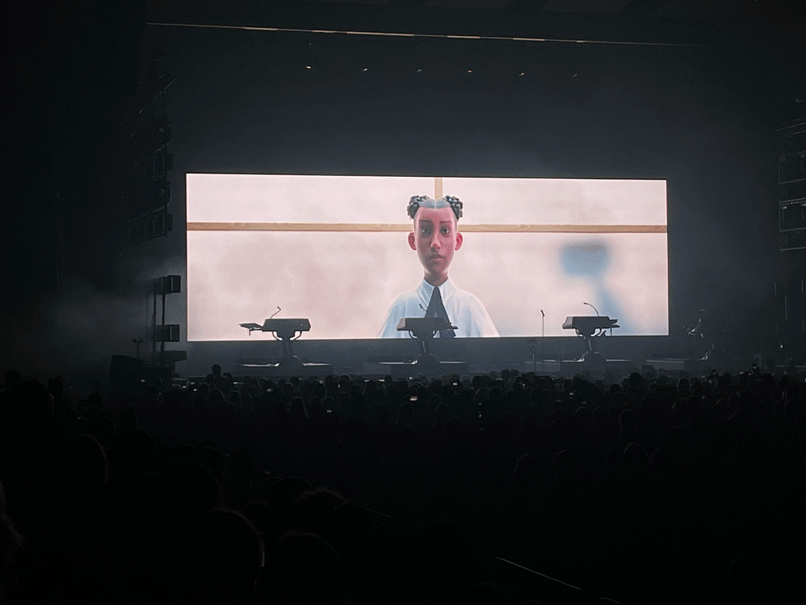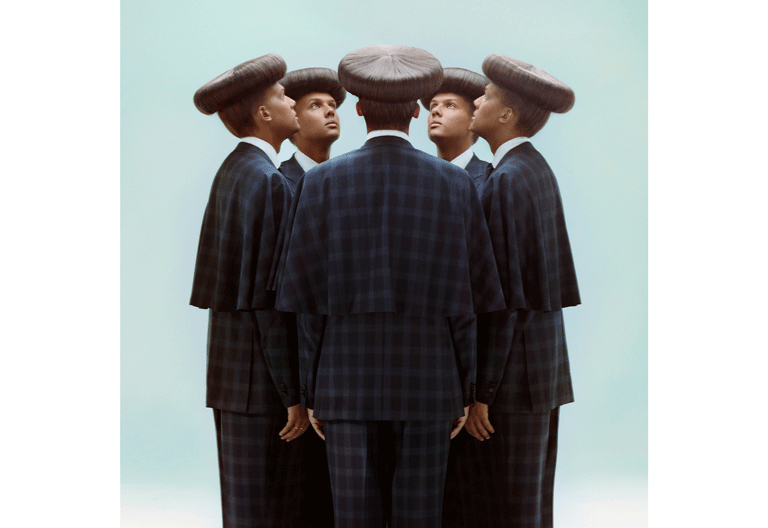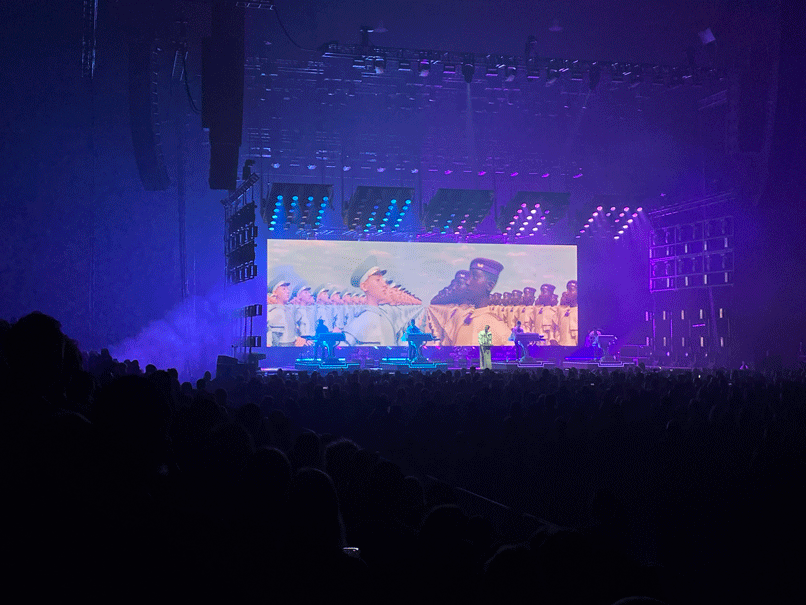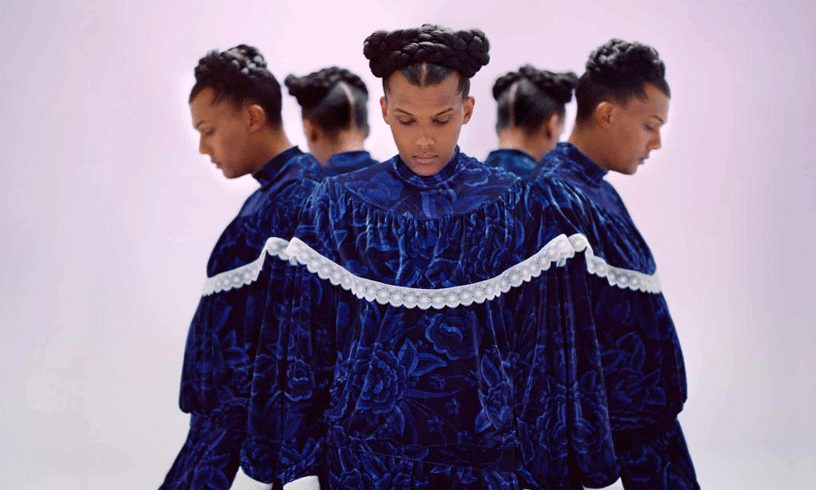Before seeing Stromae in person, the Belgian, French-speaking singer appeared on stage in the form of an animation. The crowd still roared with excitement. Donning the same clothes and hairstyle as his virtual self, Stromae would appear and spend the rest of the night singing, dancing, introducing the crowd to his robot dog and thoroughly thanking his whole team for making the Multitude tour happen.

In his new album, Stromae chronicles his own struggles and victories, as well as those of the world around him. The last album by the musician (racine carrée) was released in 2013—a time long before the pandemic. In the singer’s new album, Multitude, there is an ode to people who have difficult working conditions: from nurses to waiters to fishermen, he wants to “let us celebrate those who do not celebrate.” The track—“Santé”—has an upbeat tone that matches its joyous strings, but the lyrics also ridicule the remarks of entitled customers who look down on essential workers while enjoying all the services provided by them. Half-thanks, half-commentary, “Santé” is accompanied by a two-step dance that the crowd learns in concert. Despite highlighting the difficulties of being an essential worker, the song feels cathartic at its core and encourages movement.

Perhaps the darkest of the songs on Multitude, “L’enfer,” follows Stromae’s mental health struggles and “all the thoughts putting [him] through hell.” Struggling with adverse physical and mental health effects triggered by performance burn-out and anti-malaria treatment, Stromae solemnly sings of considering suicide and not knowing what he should do with his thoughts. The song is a mix of morose piano, tearing synth that just barely lags and exasperated background cries that plead for help without using words. “L’enfer” made headlines in French news after Stromae answered an interview question regarding whether music helped him cope with dark thoughts. Breaking into song, Stromae’s answer was “L’enfer” itself.
Directly addressing his own mental health issues on TV, Stromae’s approach to sharing the single was innovative and impactful.

Additionally, Stromae is well-known for taking on characters to explore viewpoints outside his own life experience. Doing this earlier in his career in the "Tous les memes” music video, he embodies a woman and a man in a relationship that has gone sour. The lovers throw out hurtful stereotypes at each other: “You men are all the same/ Macho but cheap/ A bunch of unfaithful fools,” and “We’ve set the date for our next argument/ We’ve set the date around that time of month”. However, Stromae also incorporates the frustration that women face from societal expectations around relationships, like mothering their partners or defying aging to match societal beauty standards.

In Multitude’s “Riez,” Stromae sings from the perspective of four different people, all with varying dreams of wealth, adoration and security. The first Grammy-infatuated character says they’ll “have coin and [they'll] be so rich, [they'll] even have a ton of friends,” while the last person is “happy with nothing, as long as [they] have [their] papers.” Contrasting the character who is dreaming of money to that who doesn’t have a place to sleep, Stromae highlights the growing gap between socioeconomic classes and the ensuing difference in their priorities that follows.
Adversely, it’s also possible to view the song from the perspective of one person whose circumstances have changed drastically in life. The two characters in the middle of the song serve as the in-between to the book-ending characters; “I don't need a residential neighbourhood/ I'll construct with my own two hands,” and “No, my goal isn't to be loaded, just an executive salary/ And I won't end my days in this pathetic apartment.”
By shining a light on each of these people back to back, “Riez'' reveals just how different an ideal life can look from one person to the next.
However, the song also considers how superficial and superfluous some achievements can be, especially in a capitalist economy. At what point does the pursuit of something better turn into the pursuit of excess? Why are there still people dreaming of shelter when there are 2,668 billionaires with a net worth of $12.7 trillion who could live multiple lifetimes on a tiny fraction of their wealth?

Truly, Stromae’s entire body of work could cover countless United Nations Sustainable Development Goals. However, the goals of Good Health and Well-Being, Decent Work and Economic Growth, and Reduced Inequalities especially stand out in Multitude. The focus on mental health in “L’enfer,” the desire for better working conditions/appreciation of working people in “Santé” and the questioning comparison of the social classes in “Riez” exemplify these goals in a nuanced manner.
To support Stromae and his socially-conscious music, you can follow him on Instagram and Twitter (@stromae), as well as on YouTube. For more information about his upcoming projects, visit mosaert.com, the Belgian creative label founded by Stromae and his brother Luc Van Haver.
